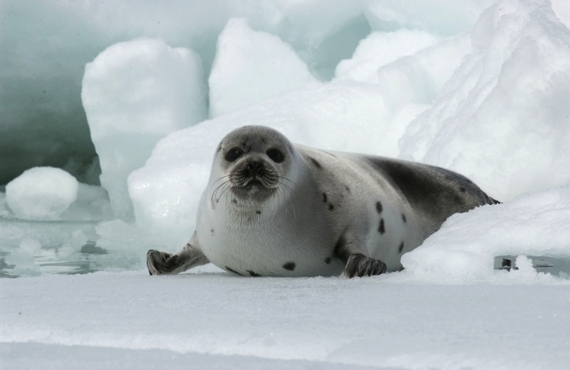The IFAW, the International Fund for Animal Welfare is dedicated to protecting and saving animal species around the world. For more than forty years, IFAW has worked to provide hands-on assistance to animals in need, from Elephants in Africa to Tigers in Asia to cats and dogs. If you know them at all, you probably know them best for their campaign to stop the slaughter of baby seals in Canada.
The lifeblood of IFAW, and organizations like them, is getting their message out to the public.
Until recently, the best, and often the only way to do that was to attract, cajole and convince major broadcasters like CNN or The BBC to fly to far off destinations around the world and assign a reporter and crew to 'do a story' on them and their activities.
This was a remarkably complex and difficult way to take their work and message to the public. For CNN or ABC News it required an expensive diversion of limited resources. Air fares, salaries, hotels, meals, days to produce a single one minute and twenty second story that would be seen once on the evening news. Was it worth it to a broadcaster? Generally not.
So for the many years and hundreds of stories around the world that IFAW was involved with, only a tiny fraction ever got told.
Until now, IFAW, and many other organizations like them, had little choice. They were entirely at the mercy of an assignment editor and a 'bean counter' at the networks with limited resources and generally limited interest. (Lemme see -- endangered whales in Greenland or George Clooney's wedding in Venice. Do I even have to ask?)
So IFAW and the whales and the tigers and the seals all got pushed to the bottom of the barrel, if they were even in the barrel at all.
In the days when a broadcast quality TV camera cost $100,000 and only CBS or NBC could deliver the news, IFAW and millions of others had no choice but to suck it up and consider themselves lucky when a network deigned to give them a minute or two of air time.
That was then.
This past week we have been training a dozen IFAW people from all over the world to shoot, script, edit and upload their own stories in video, on their own. They shoot with iPhones and iPad minis. The footage is remarkably good. Remarkably. They edit on iPads or laptops with Final Cut. It's as professional as you can get. And they delver a perfect product every time.
What makes the stories even better is that they actually know what they are talking about. They live the stories every day. They care about them. For them, it is personal and important. This isn't just another 'assignment'. It's passion.
And, even more importantly, they are there when something happens. At the moment it happens. And... because they are shooting on iPhones, they have a video camera with them all the time.
This "taking control of your own story" is something entirely new in the world of media, and something very very important.
The way the world sees you is, to a large extent, the way that television news and journalism chooses to portray you (or ignore you). Until now, pretty much everyone with a story they wanted told was at the mercy of a tiny handful of TV producers and networks.
Why should they have such power over what the rest of the world gets to see.. or not see?
Another of our clients is the UNHCR, the United Nations High Commissioner for Refugees. They live and work in places like Mali or Somalia or Syria. They have really important stories to tell to the rest of the world. So why should they have to wait until CNN deigns to send a crew and a reporter who probably does not know the language, the culture, the background or even the story. Why not empower the people who are actually living the story to tell it themselves?
And that is what we are doing.
Carpe Medium! Seize the medium.
Today, the technology allows you... anyone... to do this.
All it take is an iPhone and a bit of training. And an important story to tell.
There are, after all, more important stories than the Clooney wedding.
No... seriously. There are.

